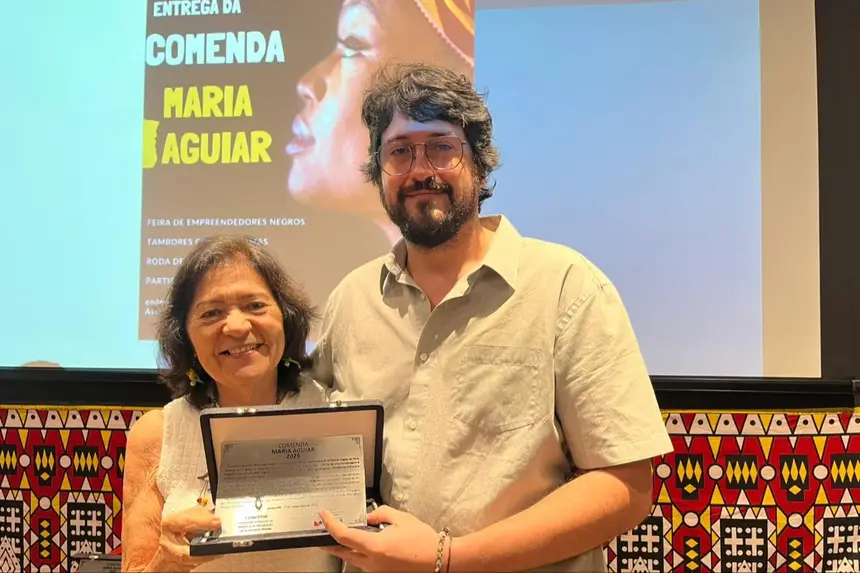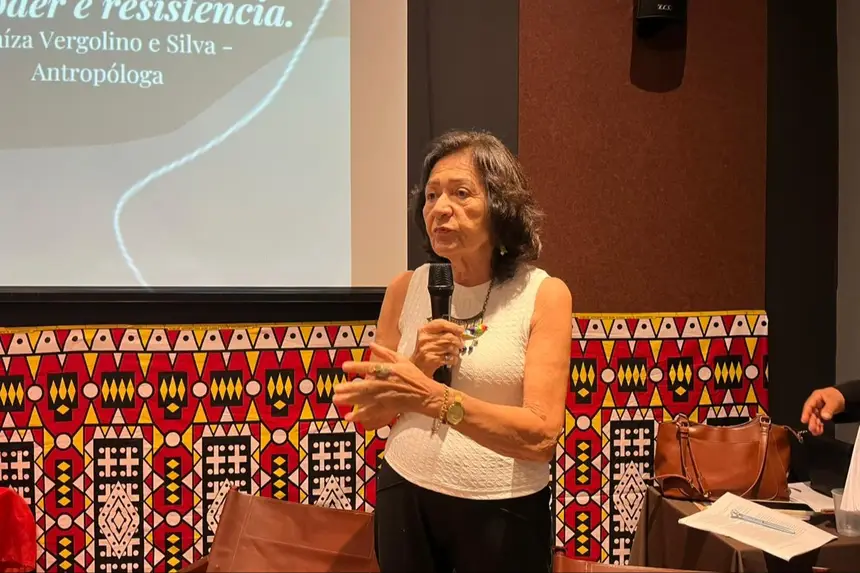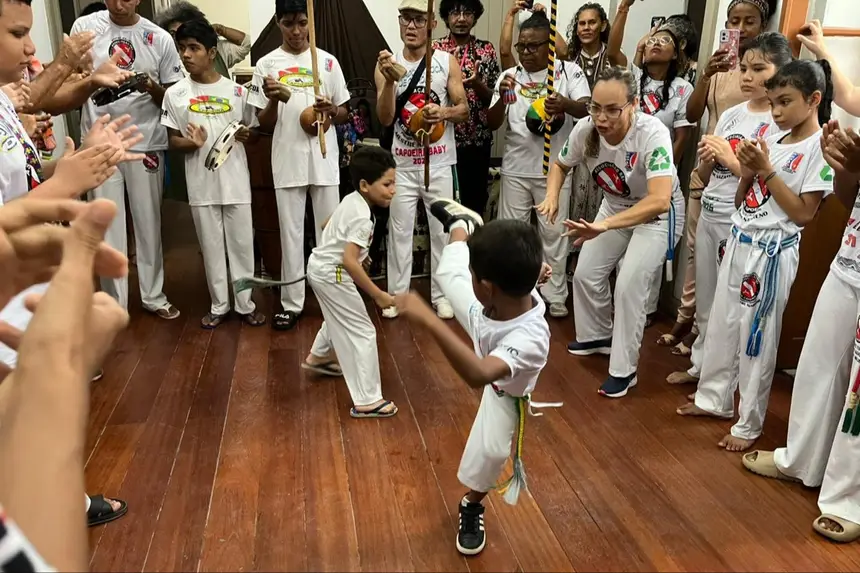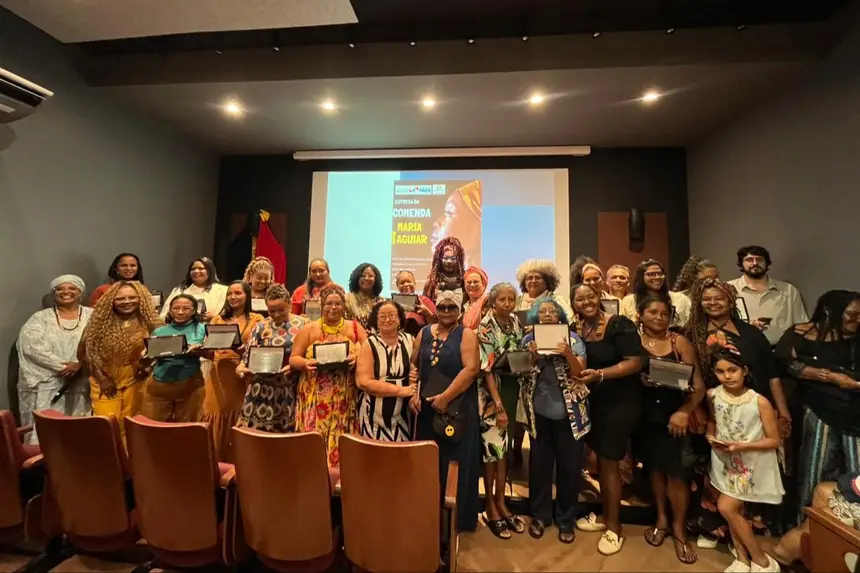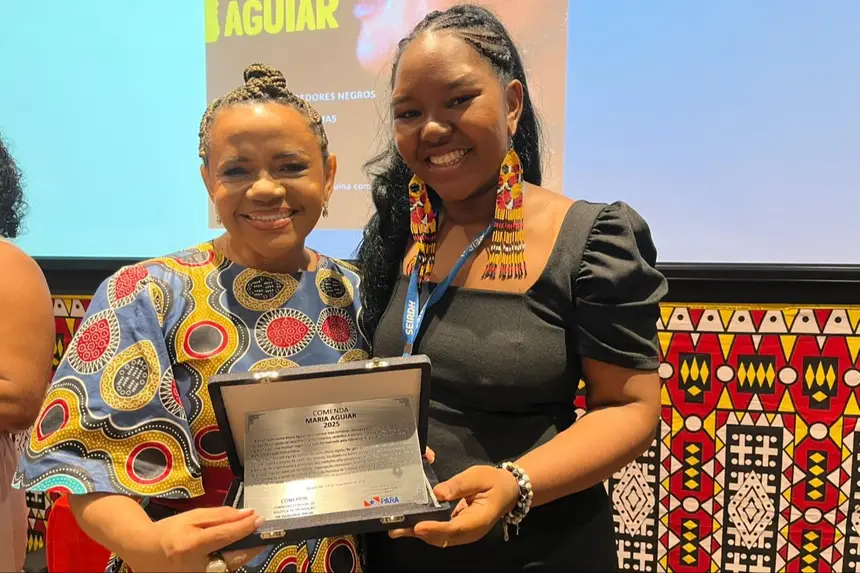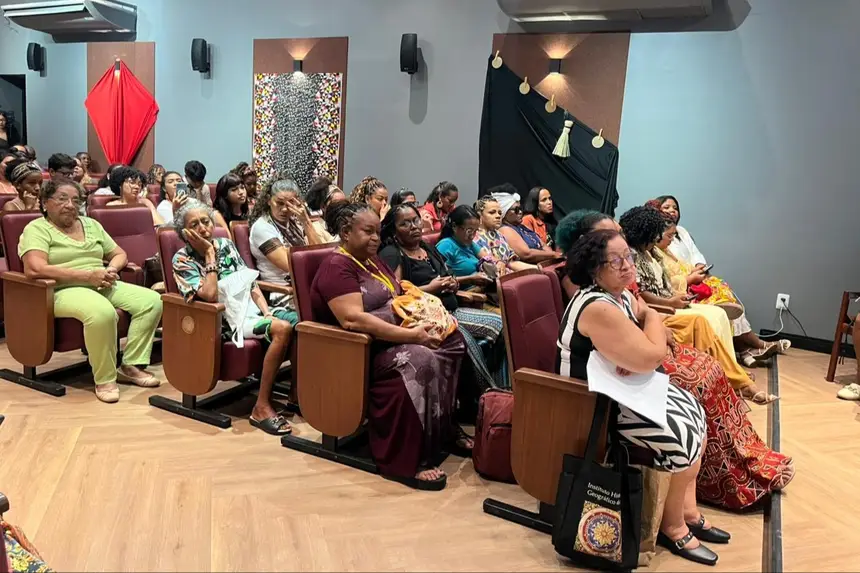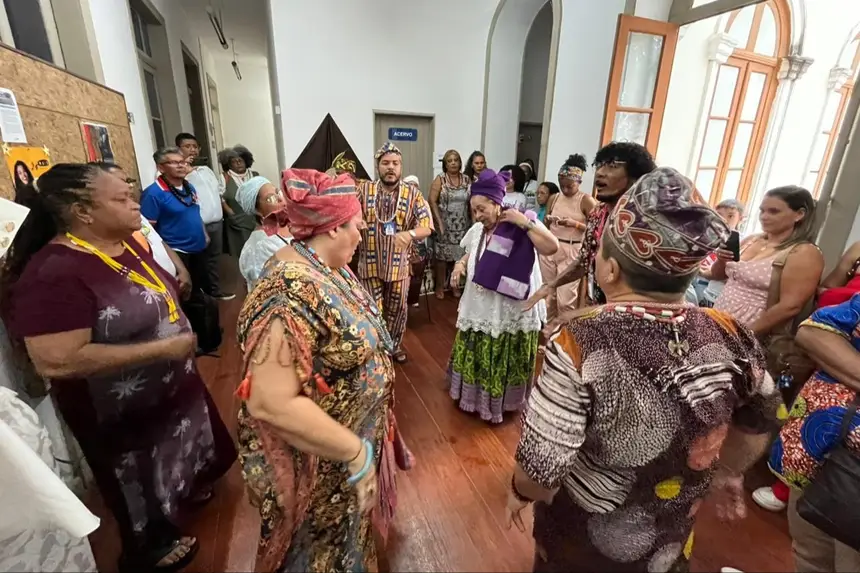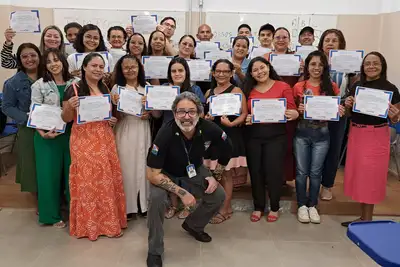Seirdh awards the Maria Aguiar Commendation to women with a legacy of struggle and resistance
The honor recognizes female trajectories that strengthen racial equality and the preservation of Afro-Amazonian traditions
Continuing the programming in honor of Black Consciousness Day, the State Secretariat for Racial Equality and Human Rights (Seirdh) held, on the afternoon of this Monday (17), the delivery of the Maria Aguiar Commendation, an honor that recognizes women who stand out in various fields of activity and who continue to strengthen the historical struggle for rights, equity, and cultural appreciation.
The ceremony was attended by representatives of social movements, community leaders, and family members of the honoree who gives her name to the commendation. The delivery took place on the same day that the Government of Pará carried out a series of historic actions aimed at quilombola communities, including the signing, by Governor Helder Barbalho, of the decree that officially establishes the Maria Aguiar Commendation.
According to the Seirdh secretary, Edilza Fontes, the signing of the decree ensures the continuity of the tribute in the coming years. She also announced that a bust of Maria Aguiar will be installed at the passage that bears her name in Belém.
"I am happy. I want to announce that we will build the bust of Maria Aguiar in front of the passage that bears her name. The idea is for this bust to be a symbolic landmark and a reference to ancestry, strengthening culture and preserving the memory of this great leader,” she commented.
According to the Seirdh secretary, Edilza Fontes, the tribute represents not only recognition but also the continuity of a legacy. She announced that new actions will be launched next year. "We intend to inaugurate this space, which will be a place of prayer, of ancestral reference, and of strengthening African matrix culture,” she commented.
A total of 20 women were awarded the commendation, in historical recognition of their trajectories. Among the honorees is Professor Sandra Guimarães, recognized for her work on the extension project "Racial Literacy," aimed at combating racism through anti-racist education. For her, the recognition reaffirms the responsibility and urgency of the cause.
“I am happy and honored by the recognition of my work. Those who work in anti-racism know that it is a constant struggle, and I, as an educator, see education as the way to confront this very perverse system of domination. I believe in building a society where no one dies or loses opportunities because of their color. This is the democratic and non-racist country I dream of,” she stated.
Religious leader and symbol of cultural resistance
Anthropologist Anaíza Vergolino, invited to present the story of the honoree, emphasized the importance of public recognition of Maria Aguiar's contribution. According to her, the moment represents a symbolic milestone.
“This is a unique moment. Maria Aguiar is a paradigmatic example of the connection between charisma, social networks, power, and resistance. Her work has become a public thoroughfare, and today she receives this recognition through the Seirdh Commendation,” she highlighted.
In addition to the official tribute, the ceremony also awarded an honorable mention to the great-grandson of the religious leader, Pierre Azevedo, an anthropologist and cultural producer. He highlighted that public recognition helps preserve a historically silenced memory.
“It is essential to preserve memory, especially that of women who made, fought, and resisted in such difficult times. These are memories that are often subjugated or set aside, but that increasingly reveal the importance of memory built by people, not just the official memory of the State or institutions,” he emphasized.
During the event, there were also drum performances with the Potmas, a capoeira circle, and a fair of enterprises run by black women.
With this event, Seirdh reaffirms the commitment of the Government of Pará to public policies aimed at racial equality, strengthening traditional communities, and preserving the traditions that are part of the life and identity of the people of Pará.



